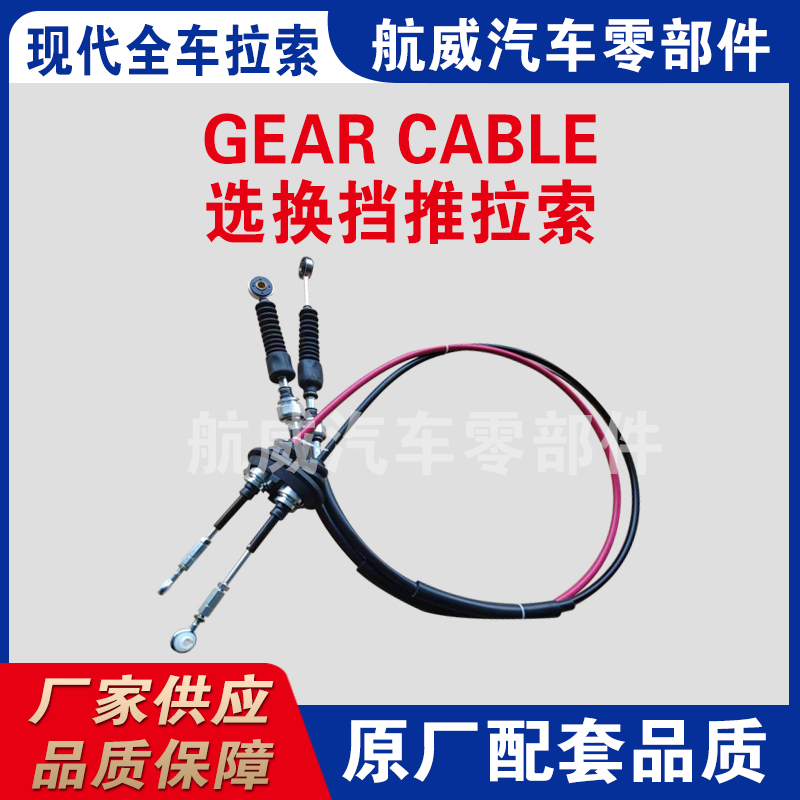Understanding the Functionality and Maintenance of Carburetor Cables for Optimal Performance
Understanding the Carburetor Cable Its Importance and Maintenance
The carburetor cable is a fundamental component in many internal combustion engines, particularly those found in motorcycles, lawn mowers, and older cars. This cable connects the throttle lever to the carburetor, allowing the driver or operator to control the engine's power output effectively. Despite its relatively simple design, the carburetor cable plays a crucial role in the performance of an engine. This article will explore the importance of the carburetor cable, its operation, common issues that can arise, and maintenance tips to keep it functioning optimally.
Function and Operation
At its core, the carburetor is responsible for mixing air and fuel in the correct proportions to ensure efficient combustion within the engine. The carburetor cable facilitates this process by connecting the throttle control—usually a grip or pedal—to the carburetor itself. When the operator presses the throttle, the cable pulls on a lever attached to the carburetor, opening it to allow more air and fuel into the combustion chamber. The precise control of the throttle is critical for the engine's responsiveness and overall performance.
Additionally, the carburetor cable can influence vehicle dynamics
. For example, a well-functioning cable allows for smooth acceleration and deceleration, whereas a malfunctioning or frayed cable can lead to erratic engine performance. Thus, understanding the carburetor cable and ensuring its proper maintenance is essential for anyone operating a vehicle that relies on a carbureted engine.Common Issues
Like any mechanical component, carburetor cables can experience wear and tear over time. Some common issues include
1. Fraying The cable can fray due to friction against surrounding components or due to exposure to harsh environmental conditions. This fraying can lead to cable failure.
2. Corrosion In humid or wet environments, the metal components of the cable can corrode, affecting their functionality and lifespan.
3. Binding If the cable is not properly routed, it can bind or snag, leading to poor throttle response or complete loss of control over the engine's power output.
4. Stretching Over time, cables can stretch, which may result in a slack feeling when attempting to accelerate.
5. Disconnection The cable can sometimes detach from either the throttle control or the carburetor, leading to immediate engine performance issues.
carburetor cable

Recognizing these issues early can help prevent further damage and ensure a smoother operation of the engine.
Maintenance Tips
Proper maintenance of the carburetor cable is vital for optimal engine performance. Here are some useful tips
1. Regular Inspection Periodically inspect the cable for signs of wear, fraying, or corrosion. Look for any visible damage along its length and ensure it is properly seated in its routing.
2. Clean the Cable Dirt and grime can accumulate on the cable, leading to binding or increased wear. Use a clean, dry cloth to wipe down the cable and remove any debris.
3. Lubrication Apply a light lubricant designed for cables to ensure smooth operation. This will help reduce friction and prevent premature wear.
4. Check Cable Tension Ensure that the cable is not too loose or too tight. Adjust the tension according to the manufacturer's specifications to maintain a balance between responsiveness and control.
5. Replace when Necessary If the cable shows significant signs of wear or if it becomes ineffective at controlling the throttle, it may be time to replace it. Replacement is often a straightforward process, but it’s essential to use a cable that meets the original specifications.
6. Professional Additionally If you are unfamiliar with engine components, consider seeking the help of a professional mechanic. They can provide insights and maintenance tips specific to your vehicle.
Conclusion
The carburetor cable plays an indispensable role in the functioning of various engines. Understanding its importance, common issues, and how to maintain it can significantly enhance engine performance and reliability. By following proper maintenance steps, operators can ensure their vehicles remain responsive and efficient, ultimately contributing to a better driving experience. Whether you’re a seasoned mechanic or a casual user, knowing your carburetor cable can save you from unforeseen engine troubles and keep your machinery running smoothly for years to come.
-
Workings of Clutch Pipe and Hose SystemsNewsJun.04,2025
-
The Inner Workings of Hand Brake Cable SystemsNewsJun.04,2025
-
The Secrets of Throttle and Accelerator CablesNewsJun.04,2025
-
The Hidden Lifeline of Your Transmission Gear Shift CablesNewsJun.04,2025
-
Demystifying Gear Cables and Shift LinkagesNewsJun.04,2025
-
Decoding Clutch Line Systems A Comprehensive GuideNewsJun.04,2025
